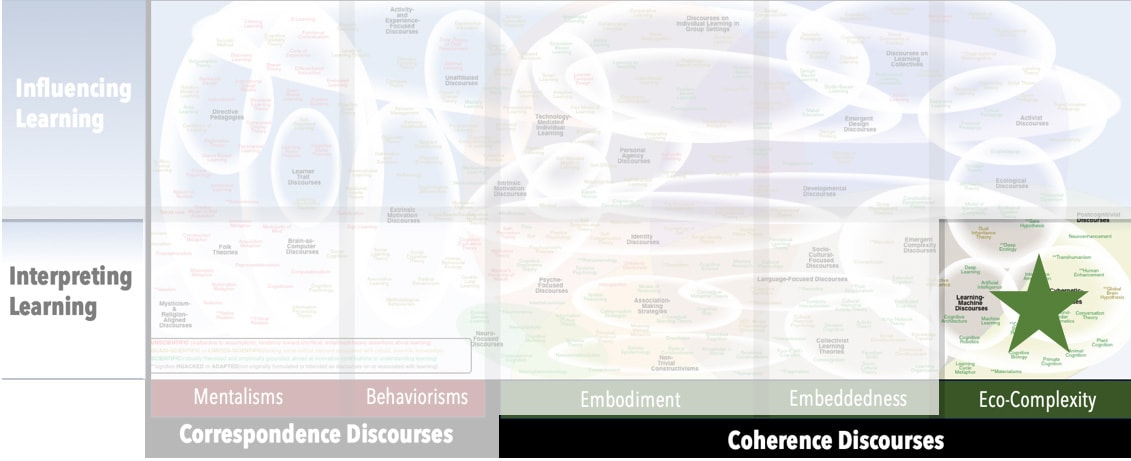Focus
Use of substances and electrical stimulation to improve brain functionPrincipal Metaphors
- Knowledge is … current range of possible functioning
- Knowing is … adequate functioning
- Learner is … a biological being
- Learning is … enhancing functions
- Teaching is … enhancing learning
Originated
2000sSynopsis
Neuroenhancement is an umbrella term that refers to improving cognitive functions and abilities through pharmacological and medical means. Pharmacological agents include an array of substances to improve vigilance, attention, concentration, mood, executive function, wakefulness, memory, and physical performance. Non-pharmacological measures involve electrical brain stimulation and brain–machine interfaces. Associated discourses include:- Cognitive Liberty (Wrye Sententia, Richard Boire, 2010s) – the right to control one’s own cognitive processes – a topic of rapidly growing interest with recent advances in pharmaceuticals and digital technologies that can directly influence those processes
Commentary
Concerns about Neuroenhancement principally revolve around potentials for unfair advantages, unanticipated side effects, possibilities of addressing symptoms rather than causes, potentials for reliances and addictions, and ethical worries associated with tools and techniques that may fundamentally redefine human possibility. On a more theoretical level, the literature on learning and cognition that surrounds Neuroenhancement tends to rely on uncritical and, frequently, indefensible notions associated with Folk Theories and Information Processing Theory – rather than, as one might reasonably expect given the medical context of these discussions, theories informed by biology, ecology, and complexity.Authors and/or Prominent Influences
DiffuseStatus as a Theory of Learning
Based on its contributions to understandings of brain function, Neuroenhancement might be construed as a theory of learning.Status as a Theory of Teaching
Because the Neuroenhancement is more focused on affecting or influencing learning than with understanding learning, we are inclined to tip it more toward a theory of teaching than a theory of learning.Status as a Scientific Theory
Neuroenhancement is an area of robust scientific research.Subdiscourses:
- Cognitive Liberty
Map Location

Please cite this article as:
Davis, B., & Francis, K. (2022). “Neuroenhancement” in Discourses on Learning in Education. https://learningdiscourses.com.
⇦ Back to Map
⇦ Back to List
